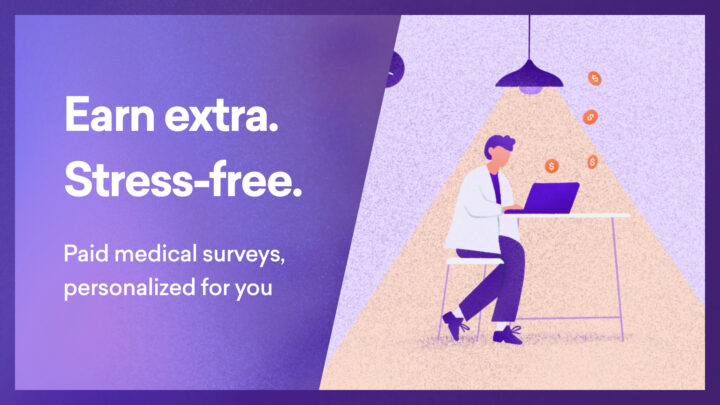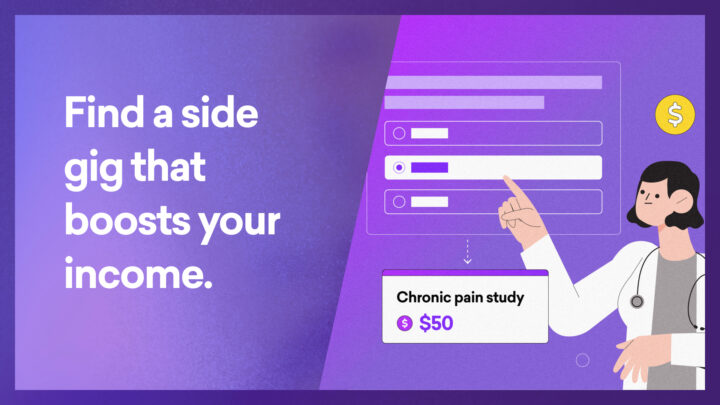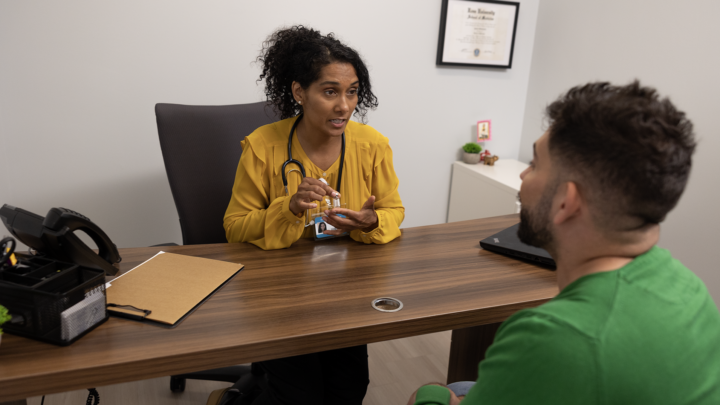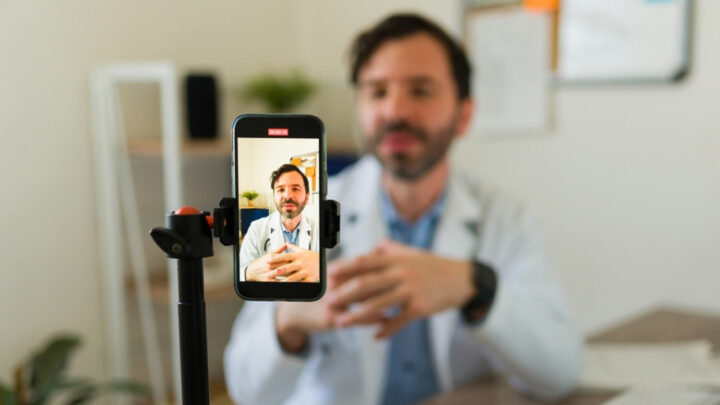
As each day passes, patients and physicians are increasingly relying on technology to enable better care and decision-making. With 65% of physicians spending at least one to four hours a day on a device, we wanted to get some insights into how they leverage digital tools in their day-to-day lives. Check out our findings below.
Television
The majority of physicians watch between 5-10 hours of television per week. Over 70% of physicians polled say that pharmaceutical companies advertise too much on TV and that direct-to-consumer ads are not useful for their professional lives.
Does art imitate life for Sermo doctors? 34% feel that ER is the most medically accurate show, and 45% say that Dr. House is the pop culture doctor they would most like to work with.
Social Media
Healthcare professionals are using social media to create, curate and consume information. When compared to the average social media platform, physicians are creating and curating more content on Sermo.
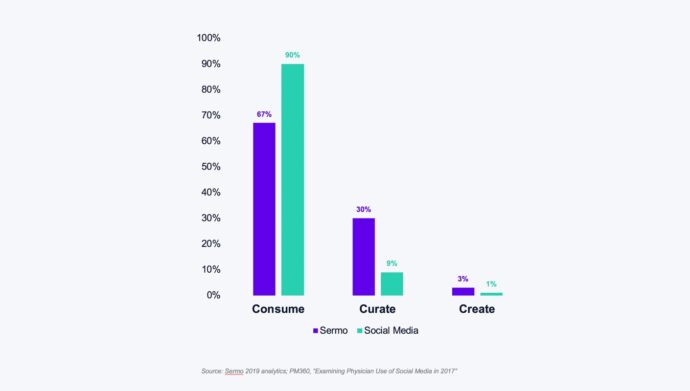
Physicians feel that there are risks associated with participating in medical discussions on public social networks such as Facebook and LinkedIn, so closed communities like Sermo provide a level of security for doctors to post with peace of mind. On Sermo, 89% of physicians trust the information they see and 93% learn new things about medicine that benefits their practice.
Our platform allows users to use their real name, a username, or remain completely anonymous when interacting with their peers – and with good reason. 55% of physicians do not feel comfortable publicly using their real name and 61% say there are topics/questions they would only feel comfortable discussing online if their identity was hidden.
On the flip side, the majority of physicians say they feel more comfortable interacting with and have a higher level of trust in information from individuals whose real identities are shown. 72% trust the opinions of individuals who use their real names and 84% are more likely to seek professional advice online if they know that verifiable experts are responding.
We may be a tad bit biased, but we think Sermo offers the best of both worlds!
Medical practice tools
Whether you’re a physician or not, you may have experienced a situation where medical misinformation had to be cleared up after performing an online search about an ailment or treatment. We recommend leaving it up to the experts rather than Dr. Google. Physicians are leveraging many types of digital tools that better support the diagnostic process. In fact, 61% of polled physicians say they use medical research support tools during practice while 31% use EHR/patient portal, 23% use secure text messaging, 14% use telehealth and 11% use crowdsourcing platforms. These digital tools are used to search for clinical trials, physician reviews/opinions, condition management information, case studies, prescribing information, and more… all to benefit the patient!
As digital tools continue to advance healthcare, we’re excited to watch how patient care and physician productivity evolves alongside it. Stay tuned for more insights!
